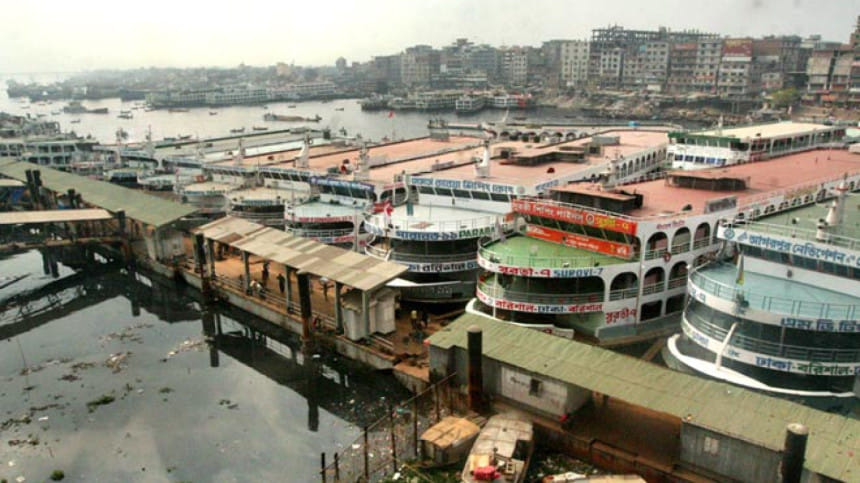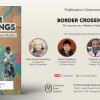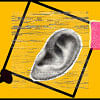Dhaka has had many names over the years — City of Rickshaws, City of Mosques, City of Magic, and many more. Perhaps, calling it 'Mini-Bangladesh' is not a misnomer either. People from every nook and cranny of the country come together in this place, and each brings something that makes it what it is today.
When we talk about Bangladesh, we refer to everything that makes up this nation. The people, the language, the food, the arts and culture, the festivals and most importantly, all of this come together and form an identity that is our own. Dhaka, in that sense, reflects the whole country in this small metropolis.
A melting pot
Kaniz Mehzabin works at a private university. For her, living in this metropolis has been a remarkable journey.
"Coming here was scary, but later, it became fun and quite a learning experience. During my undergraduate years, I had multiple roommates, and all of them were from different districts. This gave me a unique opportunity to interact. This would not have been possible had I not come here for my studies," she said.
"Melting pot" is a sociological term that usually refers to America, highlighting how it holds diverse cultures and how they all come together in harmony. While this concept ideally requires immigrants, I feel like this is not an inappropriate term when it comes to this city.
Dhaka and its inhabitants hold a culture of their own. While that is true, it's the people from other localities that turn the wheels of the metropolis. This can be felt during the holiday seasons when the average people turn homebound and the city becomes a desolate ground.
All these people come from their own districts and they bring together their culture. Once in Dhaka, they try to blend in. Like they say — When in Rome, do as the Romans! So, when you are here, one has no choice but to do as the city wants you to do. And these days, that is to follow a routine, learn to accept traffic congestion, and go crazy during holidays.
Fusion and introduction
The place forces people to come together in an almost symbiotic relationship. Thus, fusing their cultures.
Yeasin Arafat is a school teacher originating from Pabna, and lives in a mess near Kuril Bishwaroad. Like all messes in Dhaka, he has to share a room with a few others. One of them is from Narsingdi, and the other is from Chattogram.
"I had never met someone from the port city. We have so much difference in language and culture that it often makes me wonder," said Arafat recalling all the times he heard his roommate speak over the phone and speak in Chatgaiya. "It made me curious, and to be honest, I kind of want to learn Chatgaiya now," he smirked.

Holding on and letting go
My favourite way to describe the capital in one word is "unforgiving"! It can transform into many forms, but one thing remains constant — it is demanding. And one realises this just as they move into this city.
Shamim Ahmed works at a private bank. The 30-year-old moved to Dhaka from his hometown of Cumilla when he was just a little boy. It has been almost two decades since he moved here, and his experience tells you a lot about the place — how difficult it is to cling to one's roots and culture!
It can be difficult to find people from your locality, and that takes a toll on people who tend to get homesick.
"It helped that when I was completing my undergraduates at Dhaka University there was an organisation for people from my upazila. I came to know a lot of individuals from my district through this network. Sometimes, when you feel homesick, you will not believe how one simple gesture can help. Being able to speak in your local dialect is a great respite," he reminisced.
Ashraful Kabir Razul is the member secretary of a similar community, "We are the people of Ruppur", and shared something similar.
"Our community is village-centric. We started back in 2020 when we realised that there were a lot of people from our locality living in Dhaka, but we lacked unity. So, an initiative was taken to establish a group," shared Razul. "For five years, we have arranged picnics and similar events, but we have bigger plans. We want to cherish our culture and we want to create a community that helps each other because in a large city like this, where nobody has time for anyone else, only your brothers will come to help."
Search for a familiar taste
One thing is clear — a man can try as hard as he wants, but escaping nostalgia is no easy task. And most people do not even want to. That being said, holding on to your culture is so much more than a longing — it's one's identity and individualism. There are the basic elements of one's personality, and society itself stands on these elements.
So, when one looks for the familiar taste of mezbani gosht in Dhaka or chuijhal to tickle his taste buds as he can back home, it should be applauded.
Soikat Barua, an administrator who works at BUET, loves trying out new food and experiences, but being someone from Chattogram, he is not very impressed with the offerings of Chittagonian food here.
"Don't get me wrong, they are trying, and some of these restaurants are doing great, but I have not been able to find that familiar taste that I get back home," he said, admitting that homesickness might be a factor in play.
The same goes for Tamzida Tamanna, a fresh graduate from DU who hails from Bogura.
"Most of the time, you do not find that signature dish from your hometown. So, when the mood strikes, you either have to make it yourself or soothe yourself with a Dhakaiya alternative. I can never get into the curds that you find in Dhaka. Call me selective, but that's the way it is!"
If one goes looking, there are a million stories in Dhaka, each with its unique twists. For education or livelihood, people have left their hometowns and settled in the city.
While some nurture a distaste for the city, people at large have embraced the capital as Dhaka has embraced them as its own. In all its chaos and charm, it is much more than just the capital of Bangladesh. It is a place where stories converge, cultures intertwine, and identities evolve.
Amid its unforgiving pace, Dhaka remains a place that unites, proving that even in the busiest metropolis, nostalgia and cultural pride thrive. In embracing its people, the capital city truly becomes a reflection of the nation it represents.








Comments